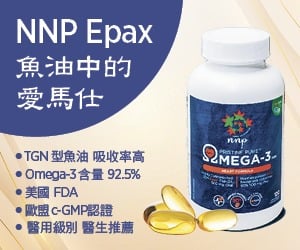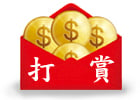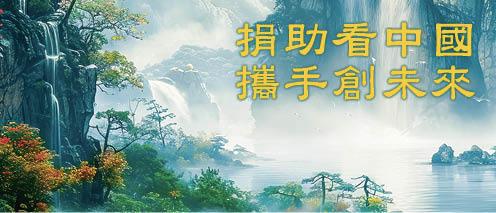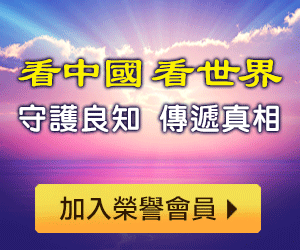
那被充分稀釋與中和了的淡淡的苦,咖啡被打造成甜而不膩、香而不俗、油可原諒的一副和平圓潤、不卑不亢的高尚氣質。(圖片來源: 免費圖片 pexels)
引
詩人盛雪在臉書中分享了一則與喝咖啡有關的體驗。令我回想起近30年前同樣和咖啡有關的一件趣事,於是跟貼分享。沒想到記憶的閘門一旦打開,就有些汎濫……索性放任它一把,點點滴滴合成一篇,分享如下:
說來有趣。來加拿大前,沒喝過非速溶咖啡。一來就發現,在國內感覺很金貴的速溶咖啡和咖啡伴侶,這些在當時可以和名煙名酒、洋煙洋酒混搭的「高檔」禮品,在加拿大人眼裡就像餐飲業中的麥當勞漢堡包、肯德基炸雞,以及披薩一樣,屬於普通低檔的快餐品,甚至相對地位還要低,根本看不上眼。(當然,那個時候,國內剛剛興起的麥當勞、肯德基、必勝客等快餐店,價格不亞於市面上大多數新、老字號的中國餐廳,曾一度躋身中國餐飲業的中高檔行列。)而加拿大這裡幾乎每家、每個辦公室都有咖啡機,從專賣店或超市買來的咖啡豆、咖啡粉,幾分鐘內直接現做現喝。第一次在朋友家喝到嘴裡,有一種被「優越感」。好像國內喝慣了用橘子晶、果珍等沖泡的飲料後,第一次嘗到新鮮的榨橙汁時那種感覺,或者好像自己更小的時候,嘴饞的我用幾粒兒糖精溶化在一小杯白開水裡剛剛嘗到點兒甜頭,然後意外從大人手裡獲得一顆大白兔奶糖,立馬塞到嘴裡的那種好「優越」了的感覺。
正好超市有一款普通咖啡機打折,於是買了一臺。超市貨架上袋裝咖啡粉,琳琅滿目。作為咖啡小白,毫無概念、標準、喜好,隨便揀了一款價格居中的,先買回家再說。咖啡喝多了,發現自己是一個對咖啡不太感冒的人,這裡很多人喜歡喝不加糖、奶或cream的黑咖啡,甚至更加濃縮的espresso,還喝得有滋有味兒,樂在其中。可是無論哪種黑咖啡,咖啡豆、咖啡粉或速溶咖啡,我喝著都一個味兒——苦,和小時候生病喝中藥的口味一樣,都是木系的物質在水裡加熱後的味道,萬變不離其宗,就一個字——苦!
我更喜歡喝拉鐵、卡布基諾、double-double,這些添加很多糖和奶製品的咖啡。奶、油、糖的甜香是主角,而咖啡成了配角,充分襯托主角的光環。那被充分稀釋與中和了的淡淡的苦,恰到好處的將許多養生人士口中的罪犯——奶、油脂,以及除了一無是處的甜就全是「病毒」基因的糖,打造成甜而不膩、香而不俗、油可原諒的一副和平圓潤、不卑不亢的高尚氣質。
喝咖啡讓我有時不由自主懷念起小時候常喝的中藥。從幼兒園到小學、中學甚至大學,我都體弱多病,經常扁桃體發炎、發燒,父母沒少操心,我也經常掙扎輾轉於青霉素和中藥之間。青霉素針頭在屁股上留下的無數針眼兒,控訴著一次次尖酸狠毒的疼,中藥在口舌喉嚨與腸胃裡殘留的記憶,是一次次灌入過程中令人作嘔的苦。上大學時,社會進步了,不少藥製成了膠囊,吃藥就沒那麼苦了。再後來我修煉法輪功,身體健康,20多年幾乎很少頭疼腦熱了,此是後話。喝咖啡時我曾想,小時候大家都窮,糧、油、肉、糖等都是每月按票限量供應,少得可憐,奶製品更需特供。我在想,那時候每次中藥熬成了,盛出來一小碗兒,黑黑的湯色像新泡的咖啡一樣,冒著熱氣兒,如果能加上足量的糖、牛奶或cream,喝起來應該像喝咖啡一樣既愜意又享受,也不用再想著去打青霉素針了……
喝了咖啡沒幾個月,就有所發現,得出兩個結論:一、喝咖啡,特別是加了奶和糖的咖啡,只能在白天提神,早10點和下午3點鐘的coffee break喝咖啡最佳,但是晚上喝咖啡效果會打折扣,甚至失效。為什麼呢?因為我早上10點鐘在單位喝過咖啡,中午吃過午飯後,很少昏昏欲睡,使我很容易就忘掉了在國內20多年養成的午睡習慣,在加拿大生活20多年幾乎再沒有午睡過。可到了晚上,有時為了熬夜工作,泡上一杯咖啡提提神,卻還是困意襲人,迷迷糊糊睡了過去。於是到晚上,為了提神,我改喝茶了,效果極大改善。於是大膽得出了第二個結論:一方水土養一方人,咖啡屬於西方人,主要對西方人起作用,而茶葉屬於東方人,主要對華人和亞洲人起作用。所以可以觀察到,大多數西方人主要喝咖啡,很少喝茶,而中國人相反,大多數華人平時主要喝茶,很少喝咖啡。
我和太太也是喝茶多過咖啡,所以來加拿大後購買的這第一袋咖啡,過一年了才喝完。我想,下一袋兒咖啡得換一個品種才好,於是抻平了已經折疊到底的包裝袋兒,看一下牌子和品種風味,一眼就認出了兩個月前無意中知曉的一個英語單詞「DECAF」……哇!一個新發現,太神奇了!我馬上把正在爐旁忙著切菜的太太叫來,和她分享我的發現。我倆都屬於那種做事情既耐心細緻又粗心大意的人,就事論事,沒有事事平等對待的習慣。她做許多事兒都比我更細緻,但就從我在一年後,能比她先發現了「DECAF」的表現來看,對於咖啡的體驗,她比我更粗心大意了一點兒,儘管此前我們對於咖啡的看法,高度一致。
然而,這個新發現,讓我們一年來通過親身實踐所收穫的對於咖啡的體驗、認知、印象和結論,尚待更新。或許本來已經是一個完美的句號了,如今不妨改寫成一個同樣完美的問號吧。
以下是本文的英文翻譯:
Drinking Coffee
By Li Tangfeng
Introduction
Poet Sheng Xue once shared on Facebook an experience related to drinking coffee.It reminded me of afunny coffee-related incident nearly 30 years ago,so Iadded my own story in the comments.I didn’t expect that once the gates of memory opened,they would overflow…So Isimply let them run their course,piecing the bits and pieces together into this article:
It’s amusing to think about.Before coming to Canada,I had never drunk any coffee other than instant coffee.When Iarrived,I found that instant coffee and coffee whitener—once considered“premium”gifts in China on par with fine cigarettes,liquor,and imported goods—were here regarded like McDonald’s hamburgers,KFC fried chicken,or pizza:cheap,low-end fast food.In fact,their status was even lower;Canadians wouldn’t give them asecond glance.(Of course,at that time in China,McDonald’s,KFC,and Pizza Hut were newly opened,and their prices no lower than most established Chinese restaurants,and they briefly ranked among mid-to high-end dining options.)
In Canada,almost every home and office had acoffee maker.Coffee beans or grounds bought from specialty stores or supermarkets could be brewed fresh in minutes.The first time Idrank fresh coffee at afriend’s house,I felt acertain“sense of superiority.”It was like growing up in China drinking powdered orange drink,then tasting freshly squeezed orange juice for the first time—or like my younger self,who had once dissolved saccharin in aglass of boiled water,and been drinking happy for sweetness,suddenly being handed aWhite Rabbit milk candy by an adult and popping it into my mouth.Pure“upgraded”delight.
Soon after,I bought abasic coffee maker on sale at the supermarket.The coffee aisle was dazzling—so many brands and flavors.As acomplete novice with no concept,standards,or preferences,I randomly chose one in the mid-price range.Over time,I realized Iwasn’t that into coffee.Many here enjoy black coffee with no sugar,milk,or cream—some even savor stronger espresso—but to me,no matter the type or origin,whether instant or fresh-brewed,they all tasted the same:bitter,like the Chinese herbal medicine Idrank when sick as achild.All plant matter boiled in water tastes fundamentally the same—just one word:bitter!
I preferred lattes,cappuccinos,and double-doubles—coffee with lots of milk or cream and sugar.In those,the sweet,creamy aroma takes center stage,with coffee merely as asupporting role to highlight the star.That diluted,softened bitterness perfectly redeems what health enthusiasts often call“culprits”—dairy fat,cream,and sugar—transforming themselves into something sweet but not cloying,rich but not vulgar,indulgent yet dignified.
Drinking coffee sometimes made me nostalgic for the herbal medicine of my childhood.From kindergarten through university,I was frail and often fell ill with tonsillitis and fevers,much to my parents’worry.I alternated between penicillin injections—leaving countless marks on my backside—and bitter herbal decoctions that clung to my tongue,throat,and stomach.By university,medicine came in capsules,so bitterness was no longer an issue.Later,after Ibegan practicing Falun Gong,my health improved greatly,and I’ve rarely been ill for over 20 years.But I’ve often thought:back when everything was supply controlled by the government—grain,oil,meat,sugar—and dairy products were rare,if in those childhood days,we had been able to add sugar,milk,or cream to that inky-black herbal brew steaming in the bowl,drinking it might have been as pleasant and satisfying as coffee,and Imight never have wanted penicillin shots again.
After afew months of drinking coffee,I made two discoveries:
Coffee—especially with milk and sugar—works best for keeping me alert in the morning or mid-afternoon(around 10 a.m.or 3p.m.break times).But its effect fades in the evening.At work,morning coffee kept me from feeling drowsy after lunch,and Ieasily abandoned my lifelong habit of napping.Yet at night,if Ibrewed acup to stay up working,I often still drifted off.Switching to tea at night worked far better.
Local environment shapes local habits:coffee belongs to Westerners and works best for them,while tea belongs to Easterners,especially Chinese and other Asians.That’s why most Westerners drink coffee regularly and rarely tea,while most Chinese are the opposite.
My wife and Idrink tea more often than coffee,so it took us over ayear to finish that first bag of coffee grounds.When it was finally empty,I decided to try adifferent kind next time.Flattening the empty package to check the brand and flavor,my eyes landed on an English word I’d learned by chance two months earlier:“DECAF.”
Wow—a revelation!I immediately called my wife over from the kitchen to share the discovery.We’re both the type to be meticulous in some things and careless in others,treating each case individually.She’s usually more detail-oriented than Iam,but in this case,I’d spotted“DECAF”a year late—yet still before her.Although until then,we had shared identical views on coffee.
This little discovery meant our year-long personal experiment,impressions,and conclusions about coffee needed updating.What might have ended as aperfect period could now just as well be rewritten as aperfect question mark.
責任編輯:古風 来源:看中國專欄
短网址: 版權所有,任何形式轉載需本站授權許可。嚴禁建立鏡像網站。
【誠徵榮譽會員】溪流能夠匯成大海,小善可以成就大愛。我們向全球華人誠意徵集萬名榮譽會員:每位榮譽會員每年只需支付一份訂閱費用,成為《看中國》網站的榮譽會員,就可以助力我們突破審查與封鎖,向至少10000位中國大陸同胞奉上獨立真實的關鍵資訊, 在危難時刻向他們發出預警,救他們於大瘟疫與其它社會危難之中。










